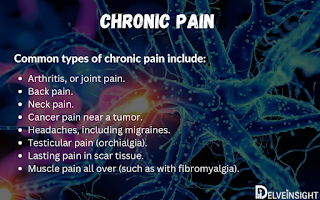Smart Solutions for Better Sleep: The Rise of Sleep Tech Devices
In an era where quality sleep is increasingly recognized as crucial to overall health and well-being, sleep tech devices have emerged as transformative tools. From monitoring sleep patterns to providing therapeutic interventions, these devices cater to a growing demand for solutions that optimize sleep quality and address sleep disorders.
Understanding Sleep Tech Devices and Types
Sleep tech devices encompass a range of technologies designed to track, analyze, and improve sleep. They include wearable devices like smartwatches and sleep trackers, bedside monitors, and therapeutic devices such as CPAP machines for sleep apnea treatment.
The Benefits of Sleep Tech Devices
Sleep tech devices offer numerous benefits, including personalized sleep insights, real-time monitoring of sleep stages, and data-driven recommendations for improving sleep hygiene. For individuals with sleep disorders like insomnia or sleep apnea, these devices provide essential diagnostic and therapeutic support, often reducing reliance on medication and enhancing overall sleep quality.
Sleep Tech Devices Market Key Players
Key sleep tech devices companies in the market include Koninklijke Philips N.V, Huawei Device Co Ltd., ResMed, Xiaomi, Apple Inc., Emfit Corp., Masimo, Garmin Ltd., Compumedics Limited, NIHON KOHDEN CORPORATION, Cadwell Industries Inc., Eight Sleep, Oura Health Oy, Sleep Shepherd LLC, Sleepace, Apollo Neuroscience Inc., Braebon Medical Corporation, Belun Technology, Nyxoah, Somnology, Inc., and others. These companies lead innovation through continuous development of wearable sensors, smart mattresses, and integrated sleep management platforms.
Sleep Tech Devices Market Dynamics
The global sleep tech devices market is experiencing rapid growth, driven by increasing awareness of sleep disorders, advancements in sensor technology, and the integration of artificial intelligence in sleep analytics. Market expansion is further fueled by rising consumer demand for non-invasive, home-based solutions for better sleep management.
Sleep Tech Devices: Challenges and Considerations
Challenges in the sleep tech devices market include data privacy concerns, variability in accuracy across different devices, and affordability issues. Moreover, ensuring regulatory compliance and addressing interoperability with other health tech systems remain critical considerations for industry stakeholders.
Looking to the Future of Sleep Tech Devices
Future advancements in sleep tech devices are poised to enhance user experience with features like AI-driven sleep coaching, personalized therapy adjustments, and seamless integration with mental health apps. The focus will continue on improving usability, accuracy, and the overall effectiveness of sleep interventions.
As the global sleep tech devices market outlook evolves, innovations are expected to play a pivotal role in addressing the complexities of sleep disorders and promoting better sleep hygiene worldwide. The convergence of technology and healthcare promises to unlock new possibilities for improving sleep and mental health outcomes.

.png)


Comments
Post a Comment